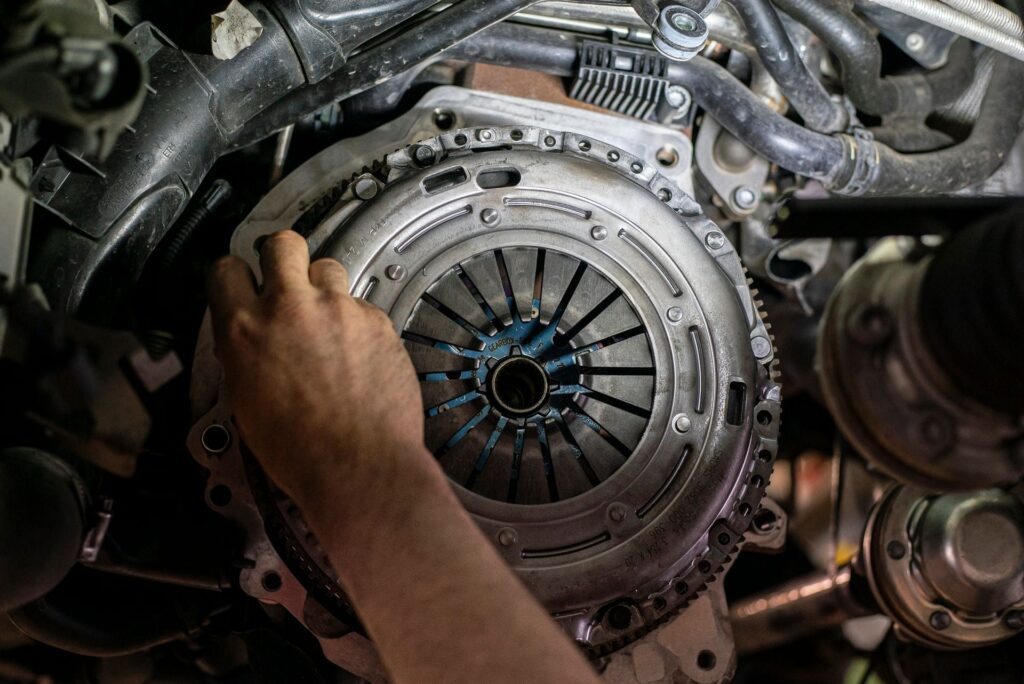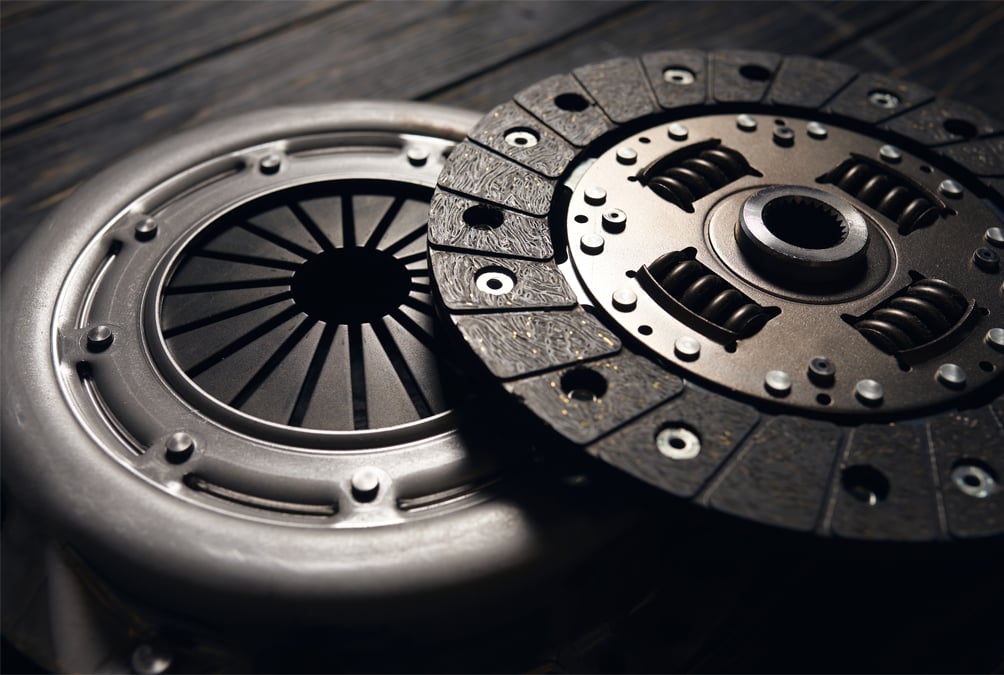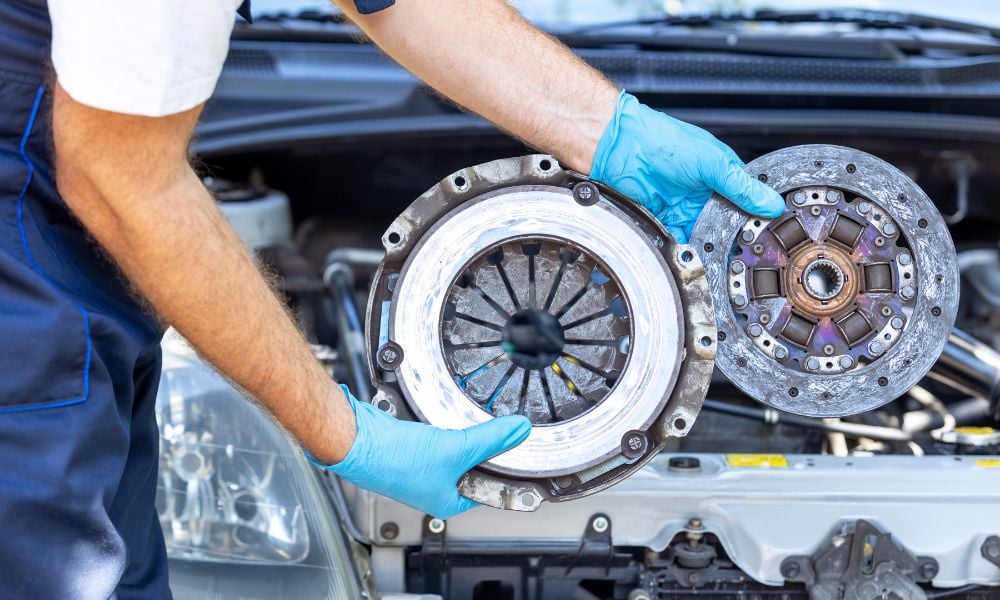Are the unknown clutch issues disrupting your drive? Well, spotting the bad clutch signs early is key! The clutch is a crucial part of your vehicle’s manual transmission, acting as the link between the engine and wheels. It enables smooth gear shifts and effortless acceleration. Without a properly functioning clutch, your vehicle’s performance would be compromised, and driving would become a struggle.
Recognizing bad clutch symptoms at the first sign of trouble is essential. Symptoms like slipping, difficulty shifting gears, or strange noises may seem minor at first, but they’re early warnings that something’s amiss. Ignoring these signs could result in expensive repairs or even complete clutch failure.
Don’t wait for the worst-case scenario to unfold! If you notice anything unusual, address it immediately to save yourself from costly repairs and potential breakdowns. Stay proactive by understanding the symptoms and taking action before the problem worsens. Here’s everything you need to know to keep your clutch running smoothly!
What Is a Clutch and How Does It Work?
Before we look into the symptoms, let’s first understand the role of the clutch in your car. The clutch is a crucial component of a manual transmission system, enabling smooth gear shifts by temporarily disconnecting the engine from the wheels. This allows you to change gears without stalling the engine. The clutch consists of several parts, including the clutch disc, pressure plate, and release bearing. Over time, due to wear and tear, these components can malfunction, causing the clutch to fail or function improperly.
Now that we know what the clutch does, let’s look at the common bad clutch symptoms you should watch out for.
What are the Common Bad Clutch Symptoms?
Your car will often provide warning signs when the clutch starts to fail. Ignoring these can lead to further damage and costly repairs. Here are some common bad clutch symptoms to look out for:
| Bad Clutch Symptom | What It Means | Potential Causes |
| Slipping Clutch | Engine revs higher without a corresponding increase in speed. | Worn-out clutch disc, weak pressure plate. |
| Difficulty Shifting Gears | Resistance or grinding when shifting gears, especially when moving into gear. | Worn clutch, broken clutch cable, or fluid leaks. |
| Spongy/Soft Pedal | Clutch pedal feels unusually light, sinks to the floor, or lacks resistance. | Low hydraulic fluid, failing master/slave cylinder. |
| Chattering/Vibrations | Unusual noise or vibrations when engaging the clutch. | Worn clutch components like the pressure plate or flywheel. |
| Unusual Noises | Grinding, squealing, or high-pitched noises when pressing the clutch pedal. | Faulty release bearing or pilot bearing. |
| Clutch Pedal Sticking | Pedal sticks to the floor and doesn’t return. | Hydraulic system issues (master/slave cylinder failure). |
| Burning Smell | A burnt rubber or chemical odor after driving. | Clutch overheating from excessive slippage or wear. |
What Causes a Bad Clutch?
A bad clutch doesn’t usually fail overnight. Instead, it’s the result of prolonged wear and tear due to various factors. Here are the primary causes of a bad clutch:
1. Normal Wear and Tear
Like any mechanical part, the clutch is subject to wear and tear. The friction between the clutch disc and flywheel causes gradual wear over time. In many cases, a failing flywheel worsens clutch issues, see our guide on How to Tell if Your Flywheel is Bad? for related symptoms. If you drive frequently in stop-and-go traffic, tow heavy loads, or use your clutch excessively, it can wear out more quickly.
2. Improper Driving Habits
- Riding the clutch: Keeping the clutch pedal partially engaged can cause unnecessary friction and wear.
- Shifting too quickly or harshly: Slamming gears can also strain the clutch system.
3. Low Hydraulic Fluid
The hydraulic system is essential for the clutch’s operation. If the hydraulic fluid level is low, it can prevent proper engagement and disengagement of the clutch, leading to issues like difficulty shifting gears or spongy pedals.
4. Clutch Cable Issues
For vehicles with a cable-operated clutch system, a stretched or damaged clutch cable can lead to engagement issues. This can make pressing the pedal more difficult or prevent the clutch from disengaging fully.
5. Damaged Clutch Components
Any component of the clutch system, including the clutch disc, pressure plate, flywheel, and release bearing, can become damaged over time. If these components crack, warp, or wear down, they will affect the performance of the clutch.
How to Fix a Bad Clutch: Repair or Replace?
When you notice bad clutch symptoms, early intervention can prevent more expensive repairs. Depending on the severity of the problem, you may need either a clutch repair or a complete clutch replacement.
| Repair Option | When to Choose | Outcome |
| Clutch Repair | When the issue is isolated, such as a worn-out release bearing or hydraulic leak. | Repairing individual components can restore normal clutch function. |
| Clutch Replacement | When components like the clutch disc, pressure plate, or flywheel are damaged. | Full replacement ensures all components work together smoothly. |
Repairing the Clutch
In some cases, clutch problems can be fixed with repairs to the individual components, such as replacing the release bearing or adjusting the clutch pedal. If the issue is caused by a hydraulic leak, topping up or replacing the fluid might resolve the issue. If the clutch disc is worn but not damaged beyond repair, a simple resurfacing may be enough.
Replacing the Clutch
If the clutch disc, pressure plate, or flywheel are significantly damaged, replacing the entire clutch assembly is often necessary. Replacing the clutch ensures that all components are functioning properly and will restore your car’s performance. Keep in mind that clutch replacement can be costly, as it often involves disassembling the transmission.
Don’t Wait to Fix Your Clutch Issues!
If you’re experiencing bad clutch symptoms, act now to prevent costly repairs and avoid unexpected breakdowns. Whether it’s a minor repair or a complete clutch replacement, early intervention is key to keeping your car running smoothly.
Contact us today for expert diagnosis and fast, reliable clutch services. Our skilled technicians are here to restore your vehicle’s performance and get you back on the road with confidence!
Why Early Clutch Repairs Matter
Addressing bad clutch symptoms early can save you money and prevent more serious damage. If you delay repairs, minor issues like slipping or difficult shifting can escalate into major transmission problems.
A slipping clutch, for example, can lead to damage to the flywheel or transmission, leading to even more expensive repairs. Left unchecked, it may cause jerking during acceleration, explained in Why Car Jerks When Accelerating Needs Immediate Attention. Regular maintenance, such as replacing the clutch fluid and inspecting the clutch system, can help extend the life of your clutch and avoid these costly consequences.
Preventing Clutch Failures: Tips for Longevity
The best way to avoid clutch failure is to practice good driving habits and follow a few preventive maintenance tips:
| Tip | How It Helps |
| Avoid Riding the Clutch | Minimizes unnecessary wear on the clutch disc and prevents overheating. |
| Shift Gears Smoothly | Ensures smooth engagement and avoids straining the clutch components. |
| Avoid Heavy Towing | Prevents overloading the clutch and reduces the chances of overheating. |
| Check Clutch Fluid Regularly | Keeps the hydraulic system functioning and prevents problems like spongy pedals. |
| Get Regular Inspections | Professional inspections can identify wear before it becomes a costly problem. |
Keep Your Clutch in The Best Condition
Follow these tips and schedule regular inspections with our experts to ensure smooth, worry-free driving. Contact us today for professional clutch maintenance!
Frequently Asked Questions
1. What are the most common bad clutch signs?
The most common bad clutch signs include slipping gears, difficulty shifting, spongy clutch pedals, unusual noises, vibrations, and burning smells. These symptoms indicate potential issues in the clutch system that require attention.
2. What causes a clutch to go bad?
A bad clutch can result from normal wear and tear, improper driving habits like riding the clutch, low hydraulic fluid, damaged clutch components, or stretched clutch cables. Regular maintenance can help prevent these issues.
3. How do I know if I need a clutch replacement?
You might need a clutch replacement if your clutch slips excessively, makes grinding noises, or fails to engage gears. Severe wear or damage to the clutch disc, pressure plate, or flywheel often necessitates a replacement.
4. Can a bad clutch damage other car components?
Yes, ignoring bad clutch signs like slipping or difficulty shifting can damage other components, such as the flywheel, transmission, or hydraulic system, leading to expensive repairs.
5. What is the difference between clutch repair and clutch replacement?
Clutch repair involves fixing specific issues like hydraulic leaks or worn bearings, while clutch replacement entails replacing the entire assembly, including the clutch disc, pressure plate, and flywheel, to restore functionality.
6. How long does a clutch typically last?
The lifespan of a clutch depends on driving habits and vehicle use but typically ranges from 50,000 to 100,000 miles. Excessive stop-and-go traffic or heavy towing can shorten clutch life and cause bad clutch symptoms earlier.
7. Can I drive with a bad clutch?
Driving with a bad clutch is risky and can worsen the damage, leading to complete clutch failure or harm to other transmission components. It’s best to address bad clutch symptoms as soon as possible.
8. How much does it cost to replace a clutch?
The cost of clutch replacement varies depending on your vehicle and the extent of damage. On average, it can range from $500 to $2,500, including parts and labor.
9. What can I do to prevent bad clutch symptoms?
To prevent bad clutch symptoms, avoid riding the clutch, shift gears smoothly, maintain proper clutch fluid levels, and schedule regular inspections to detect early wear and tear.
10. When should I see a mechanic for clutch problems?
See a mechanic if you notice bad clutch signs like slipping gears, difficulty shifting, or spongy pedals. Early diagnosis and repair can save you from costly replacements and ensure safe driving.
Final Thoughts
Spotting bad clutch symptoms early can make all the difference in maintaining your vehicle’s performance and avoiding expensive repairs. From slipping gears and strange noises to spongy pedals and difficulty shifting, paying attention to your clutch’s behavior can help you address problems before they escalate.
If you’re experiencing any of these symptoms, consult with experts right away for an assessment. By acting quickly and maintaining your clutch, you can keep your car running smoothly and avoid the hassle and cost of major repairs.
Don’t let clutch issues ruin your ride! Stay on top of the signs of a bad clutch, and act fast to keep your vehicle performing at its best with the help of our professional services.



